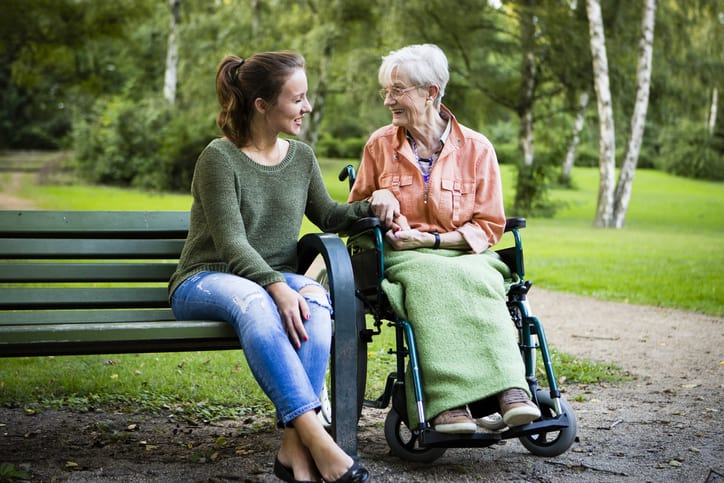What “Losing Yourself” Looks Like in Real Life
You used to have a morning routine. Hobbies. Plans with friends. A clear sense of who you were. But now? You wake up in response to someone else’s needs. You eat if they eat. You cancel plans because someone has to be there. And somewhere along the way, you stopped asking how you were doing. This is one of the most painful – and often unspoken – aspects of caregiver burnout: the slow erosion of your identity.
It doesn’t happen all at once. It’s a quiet, creeping loss that can leave you feeling invisible, isolated, and unsure of where you end and your role begins.
1. You Talk About Your Loved One More Than Yourself
Every conversation becomes an update on someone else. Their symptoms, their needs, their next appointment. You can’t remember the last time someone asked about you – or the last time you had the bandwidth to answer honestly.
2. You Don’t Recognize Your Own Needs
You’ve pushed aside hunger, sleep, even physical pain for so long that tuning into your own body feels foreign. This isn’t strength. It’s a sign of disconnection from self, a key symptom of emotional overload.
3. You’ve Stopped Dreaming
No more future plans. No little joys to look forward to. Not even daydreams about a vacation or a quiet afternoon. Survival mode has pushed imagination off the table – and when you’re just trying to make it through the day, it’s hard to remember you once had hopes of your own.
4. You Feel Guilt for Wanting a Life
You miss who you used to be. But saying that out loud feels selfish. Here’s the truth: Wanting to stay connected to yourself is not selfish – it’s survival. You deserve to exist as more than a support system.
How to Reclaim Space for You (Even in Small Ways)
1. Name 3 Things That Used to Make You Feel Like You
Music that moved you. Sunday walks. Coffee on the porch. Start with one – just one – small ritual that reconnects you to your own identity. That’s not indulgence; it’s resistance against burnout.
2. Make a “Me” List
Create a list of tiny, doable things you can give yourself each day. A quiet drive. A long shower. A single chapter of a book. These aren’t luxuries – they’re lifelines. They help remind your nervous system, and your soul, that you’re still in there.
3. Let Someone Step In
Even for an hour. Let someone else hold the clipboard, answer the nurse’s questions, handle the routine. Asking for help isn’t failure – it’s self-preservation. You need breaks. You need space. You are still a human being with your own needs, and that’s allowed.
The Willow & Wells Promise
You don’t have to disappear to be a good caregiver. At Willow & Wells, we show up not just for the patient, but for you. We’re here to help create breathing room — physically, emotionally, spiritually. We bring calm to the chaos, offer clarity in confusion, and hold space for your well-being too.
Join the Willow & Wells Community
We’re building something for people who are tired of doing this alone.
If you’ve ever felt overwhelmed, overlooked, or just plain exhausted by the system… You’re exactly who we made this for.
Caregiving is hard enough. Finding help shouldn’t be.
Get early access to everything we’re working on – tools, guides, and real talk that helps.




